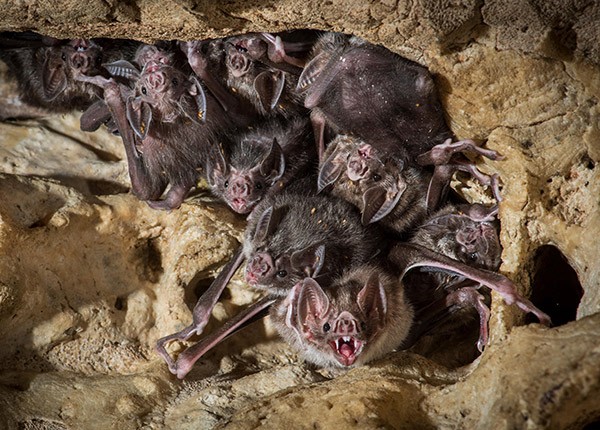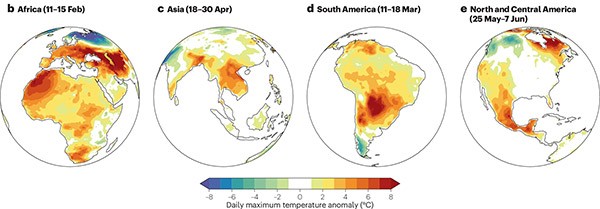You have full access to this article via your institution.
Hello Nature readers, would you like to get this Briefing in your inbox free every day? Sign up here.

Rabies outbreaks caused by vampire bats in Latin America cost farmers an estimated US$50 million every year. (Avalon.red/Alamy)
An oral vaccine could curb rabies infections among vampire bats (Desmodus rotundus) in Central and South America. The vaccine is applied to the bats’ fur in a thick gel. The bats can then spread the vaccine among themselves through mutual grooming — licking one another’s fur to keep clean. In a small test, researchers applied the gel to 24 bats in a colony of 117. After seven days, they found that the vaccine had been spread among 88% of the colony. Vaccinating the bats against rabies could stop them from spreading the virus to farm animals without resorting to harmful measures such as poisons.
Reference: bioRxiv preprint (not peer reviewed)
Six US medical organizations and an anonymous pregnant physician have filed a lawsuit against US health secretary Robert F. Kennedy Jr and the Department of Health and Human Services over recent decisions to remove COVID-19 vaccines from a list of those recommended to children and pregnant people. The plaintiffs assert that the decision that limits access to these vaccines — made by Kennedy without the input of independent experts — is harmful to the public and unscientific. “The secretary’s intentions are clear,” says Richard H. Hughes IV, a lawyer leading the effort. “He aims to destroy vaccines.”
The New York Times | 4 min read
Features & opinion
When George Slavich’s father died suddenly, the clinical psychologist was well aware of how the stress could affect his health, but his health-care providers weren’t as interested. “The experience highlighted a paradox between what I know stress is doing to the brain and body, and how little attention it gets in clinical care,” says Slavich. He is among the researchers investigating how the body reacts to stress and how it contributes to deadly diseases.
In the 1960s, groups of children in some English-speaking countries learned a different alphabet to everyone else. The Initial Teaching Alphabet (ITA), made up of more than 40 characters that each represented a distinct sound, was designed to be more phonetically intuitive than the standard one. The idea was to use the ITA to teach children to read quickly, and transition to teaching with the normal alphabet later. But the ITA was scrapped in the 1970s, leaving some children stuck only knowing an alphabet that was alien to the rest of the English-speaking world, with lifelong impacts on their literacy.
Today I’ve got the sniffles, and I’m pondering whether I’d let swarms of tiny robots clean up my sinuses. Such robots could offer safer, more targeted treatment than antibiotics or other drugs and be cleared out with a nice big blow into a tissue, say scientists.
While I dream of a team of mini-Roombas to brush my teeth, why not send me your feedback on this newsletter? Your e-mails are always welcome at [email protected].
Thanks for reading,
Flora Graham, senior editor, Nature Briefing
With contributions by Jacob Smith
• Nature Briefing: Careers — insights, advice and award-winning journalism to help you optimize your working life
• Nature Briefing: Microbiology — the most abundant living entities on our planet — microorganisms — and the role they play in health, the environment and food systems
• Nature Briefing: Anthropocene — climate change, biodiversity, sustainability and geoengineering
• Nature Briefing: AI & Robotics — 100% written by humans, of course
• Nature Briefing: Cancer — a weekly newsletter written with cancer researchers in mind
• Nature Briefing: Translational Research — covers biotechnology, drug discovery and pharma



